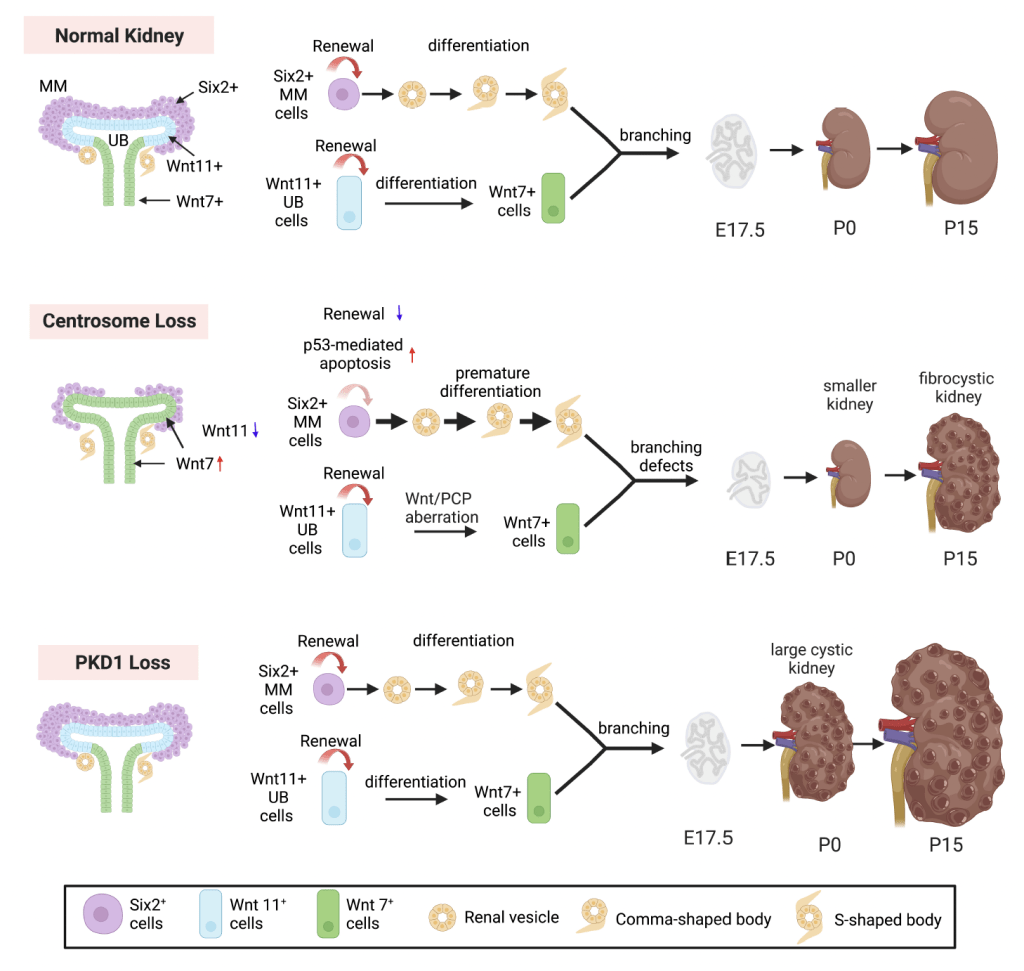Mutations that disrupt centrosome structure or function cause congenital kidney developmental defects and fibrocystic pathologies. Yet, it remains unclear how mutations in proteins essential for centrosome biogenesis impact embryonic kidney development. Here, we examined the consequences of conditional deletion of a ciliopathy gene, Cep120, in the two nephron progenitor niches of the embryonic kidney. Cep120 loss led to reduced abundance of both metanephric mesenchyme and ureteric bud progenitor populations. This was due to a combination of delayed mitosis, increased apoptosis, and premature differentiation of progenitor cells. These defects resulted in dysplastic kidneys at birth, which rapidly formed cysts, displayed increased interstitial fibrosis, and decline in filtration function. RNA sequencing of embryonic and postnatal kidneys from Cep120-null mice identified changes in pathways essential for branching morphogenesis, cystogenesis and fibrosis. Our study defines the cellular and developmental defects caused by centrosome dysfunction during kidney development, and identifies new therapeutic targets for renal centrosomopathies.
Tao’s new preprint on the consequences of Cep120/centrosome loss in nephron progenitors during kidney development is now on bioRxiv
